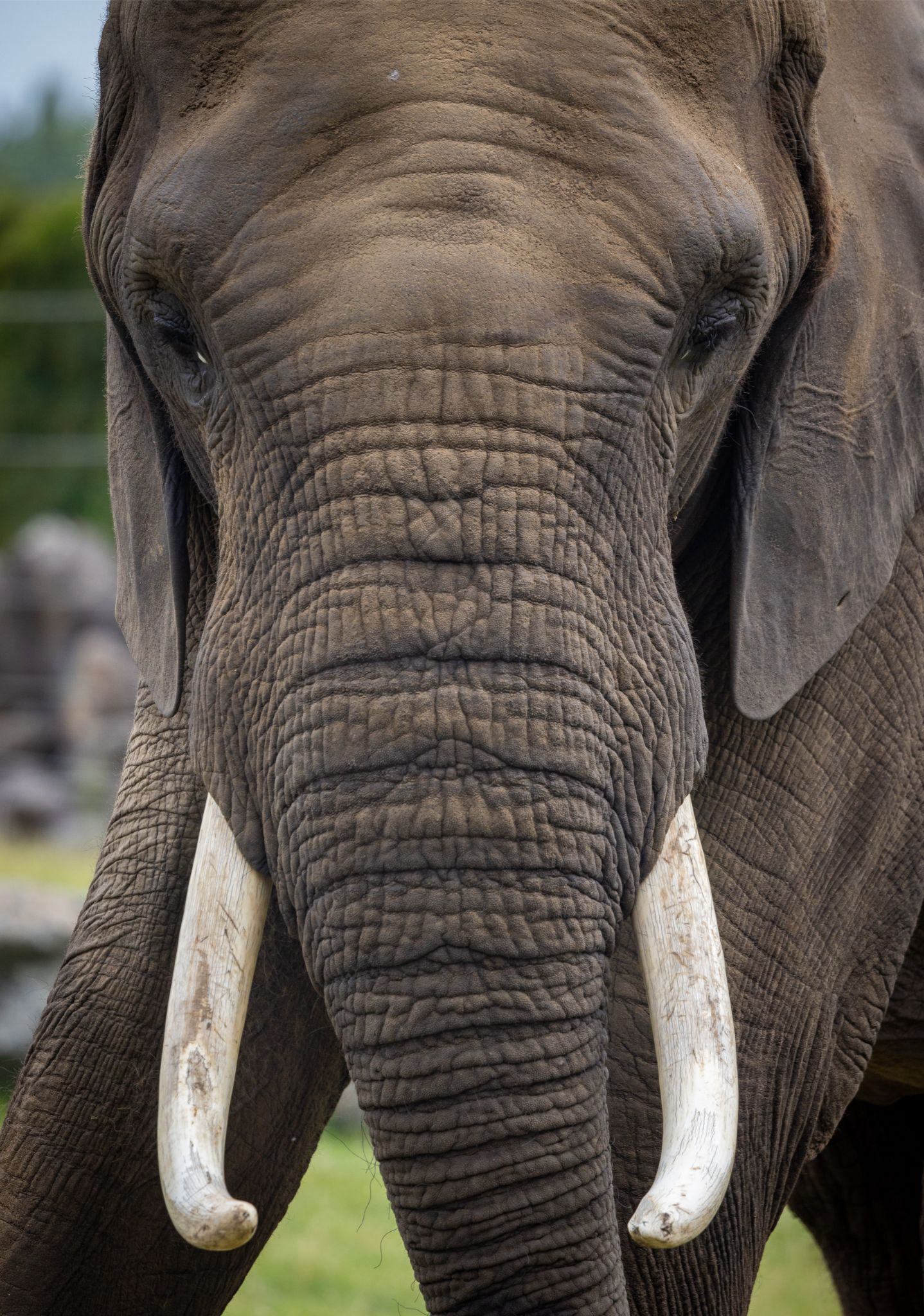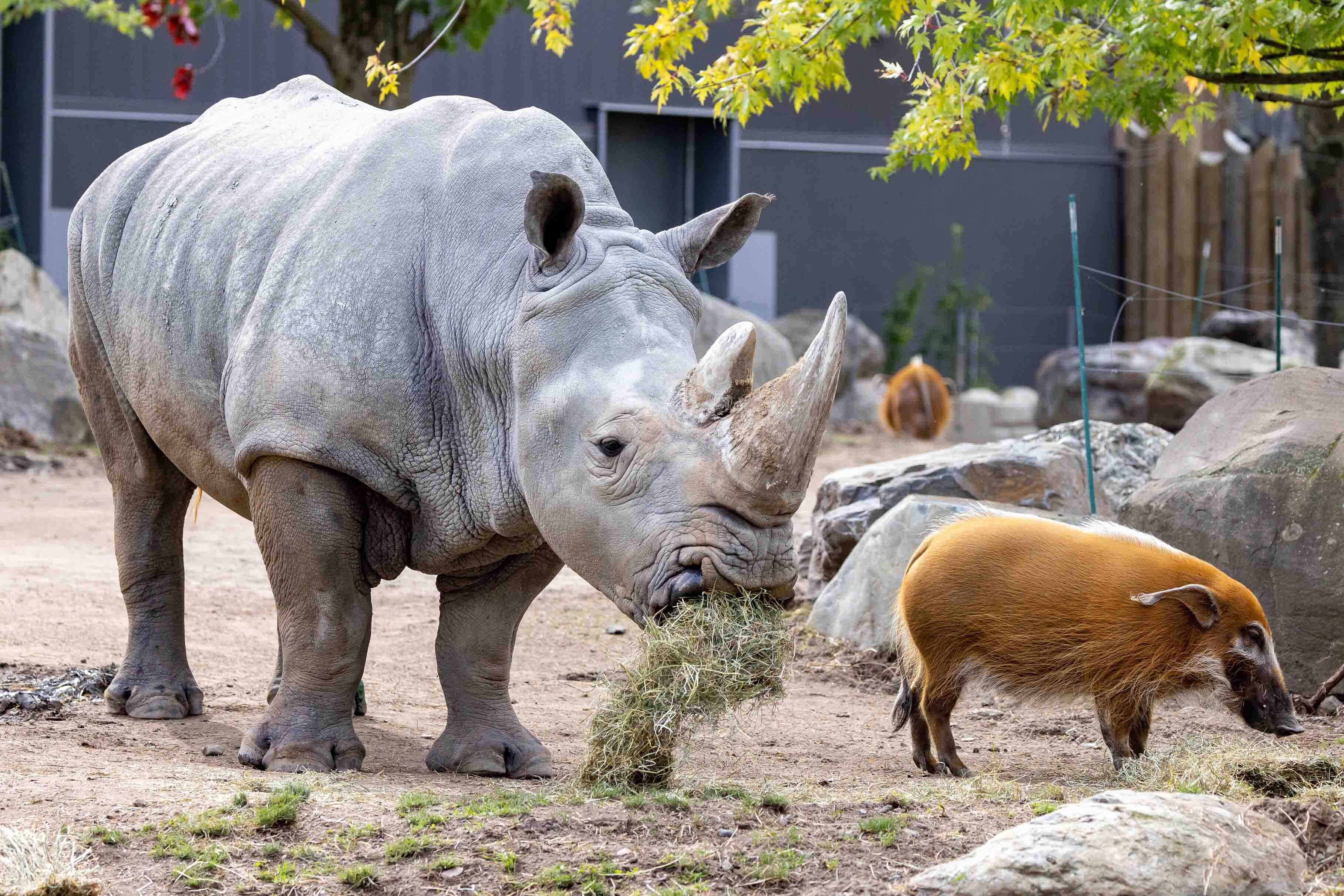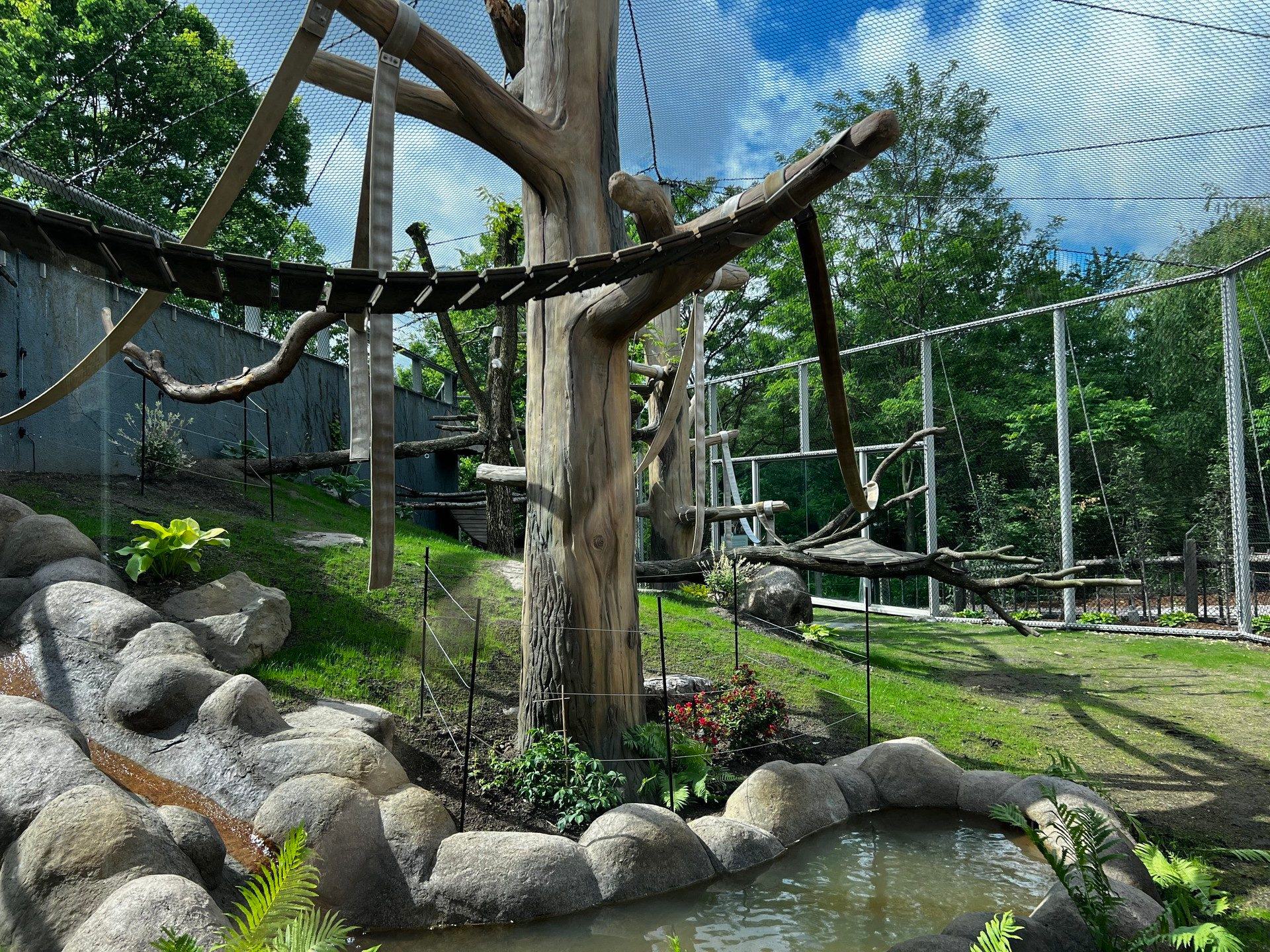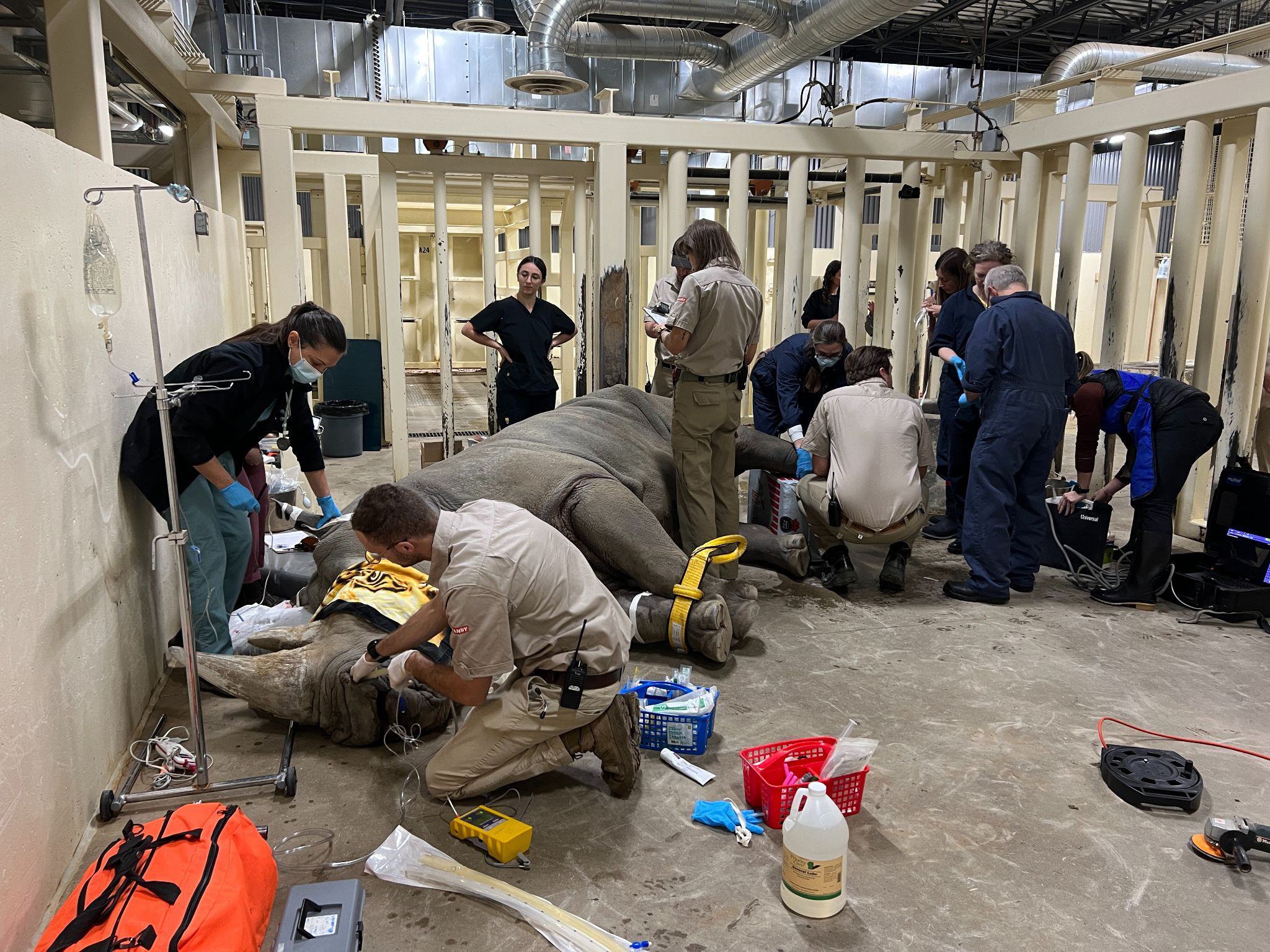Newsletter
Receive exclusive content, take advantage of our promotions and contests!
Animal well being
Veterinarians, animal care technicians, biologists, and a wide range of other specialists combine their expertise to meet the highest standards in areas such as medical care, nutrition, disease prevention, and habitat design.
But animal welfare goes beyond fulfilling basic needs and maintaining physical health; it also involves ensuring the psychological well-being of each animal. This means providing an environment that allows them to express natural, species-specific behaviors and to truly thrive.

Beyond being an ideal, animal welfare is a responsibility that lies at the very heart of our organization: housing and caring for animals—many of which are endangered—is a tremendous privilege. This is one of the reasons why Zoo de Granby is constantly striving to exceed established standards.
To guide its decisions and stay informed on the latest innovations in habitat design, animal care, and welfare, Zoo de Granby relies on the recommendations of the AZA (Association of Zoos and Aquariums), one of the most rigorous organizations in the world when it comes to zoological care. Regular inspections are scheduled to ensure that accredited institutions remain in full compliance.

On the front lines, animal care technicians are responsible for the daily care of the animals under their supervision. They ensure the cleanliness of enclosures, provide proper nutrition, and maintain habitat conditions. They know their animals better than anyone and build a relationship of trust with those they care for every day.
Technicians are also in charge of planning an enrichment schedule tailored to each species—and sometimes even to individual animals. Enrichment includes all initiatives aimed at encouraging natural behaviors, stimulating the senses, and supporting the physical and mental well-being of the animals.

Many species voluntarily participate in biomedical training. Based on positive reinforcement (typically with a treat), this training allows animals to receive care with minimal stress and without the need for anesthesia—eventually making these procedures a part of their daily routine. Sessions are short, regular, and always rewarded.
Thanks to the full cooperation of the animals, it’s possible to perform procedures such as a cardiac ultrasound on a gorilla or draw blood from a rhinoceros’s foot. Technicians can also check dental and gum health by asking the animal to open its mouth through a mesh barrier.



Each species has its own specific needs when it comes to habitat, shelter, and environment. Animals that climb must be able to do so, just as those that like to dig should have the opportunity. Elevated structures, sand mounds, tall grass, hollow logs, hiding spots, a pond… A deep understanding of the species is essential when designing habitats to ensure that the animal’s core needs are met and that it can express natural behaviors.
Animal care technicians, supported by our team of carpenters and mechanics, demonstrate great creativity and resourcefulness when it comes to adapting habitats and mimicking nature!

The veterinary team does much more than treat injured or sick animals—their primary goal is to keep the animals in our care healthy and to provide them with the best possible quality of life.
All our animals undergo regular health assessments through routine check-ups. During full exams under anesthesia, procedures such as X-rays, blood tests, and dental cleanings are performed. The biometric data collected also contributes to advancing medical research. A comprehensive vaccination and parasite prevention program helps reduce the impact of certain viruses and bacteria on the health of our animals.